Author’s note: Tekton Press was the first business I ran. Although I shut it down to do the technology consulting I love, I’m leaving this article here in the hope that it helps you as a writer.
In this article, I’ll explain exactly how to create book titles and blog post titles that are searchable and SEO friendly.
Use these tactics if you want to increase the chances of your book being discovered. If more people discover your book, then more people just might buy it. That leads to increased revenue and more leads for your business.
These tactics are based on a strategy that Peep Laja used when he was building ConversionXL, a powerhouse data-driven marketing business.
Let’s Get Started
First and foremost, do not be married to the title you already have for your book. Consider it a working title, unless you’ve already done the research and determined that there is demand for content with your title.
The first step in creating book titles that sell is to identify the long-tail keyword that describe the problems you’re trying to solve for your readers or the journey you’re taking them on. A long-tail keyword is just a fancy name for an exact phrase of more than two words.
Here are a few examples:
- “How to lose fat”
- “ClickFunnels crash course”
- “How to shave your head”
Step 1: Keyword Planner Tool
Let’s start with Google’s free Keyword Planner tool.
If this is your first time using the tool and Google warns you that none of your ads are running—as in the example below—don’t worry. We’re just using the tool for research.
Click “Search for new keywords using a phrase, website or category.”
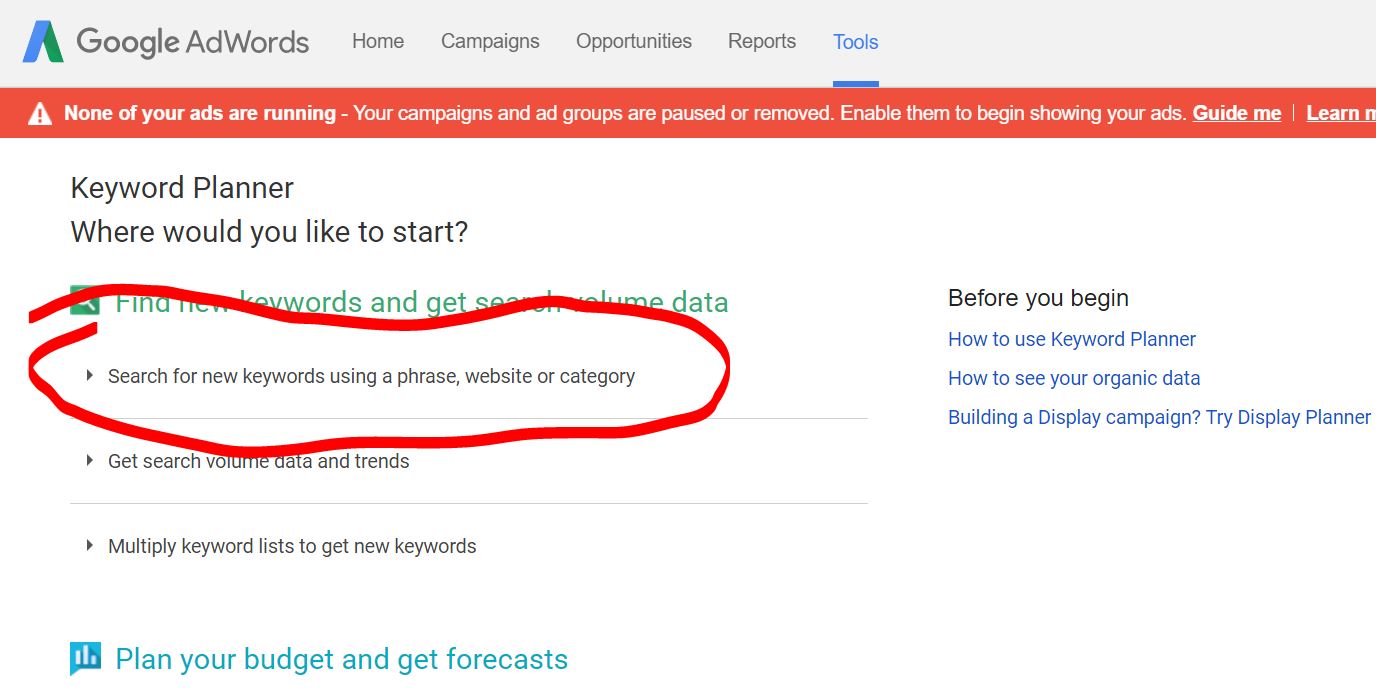 Plug your long-tail keyword into the first box, leave everything else alone, and click “Get ideas.”
Plug your long-tail keyword into the first box, leave everything else alone, and click “Get ideas.”
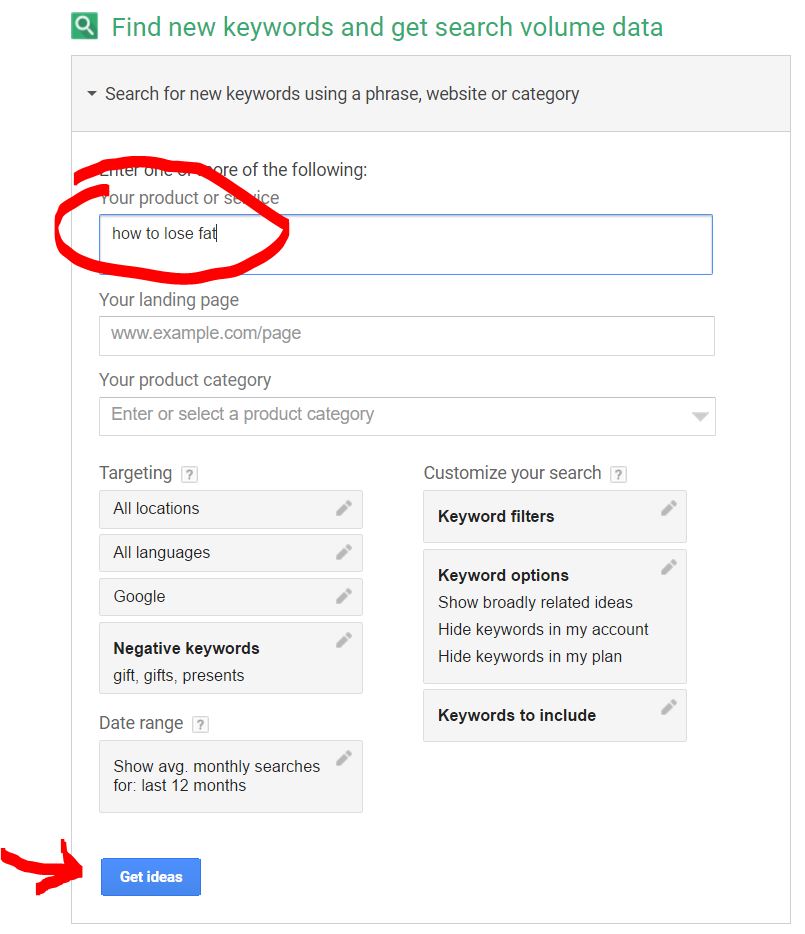 What you’re looking for here are keywords that have between 2,000 and 30,000 searches per month.
What you’re looking for here are keywords that have between 2,000 and 30,000 searches per month.
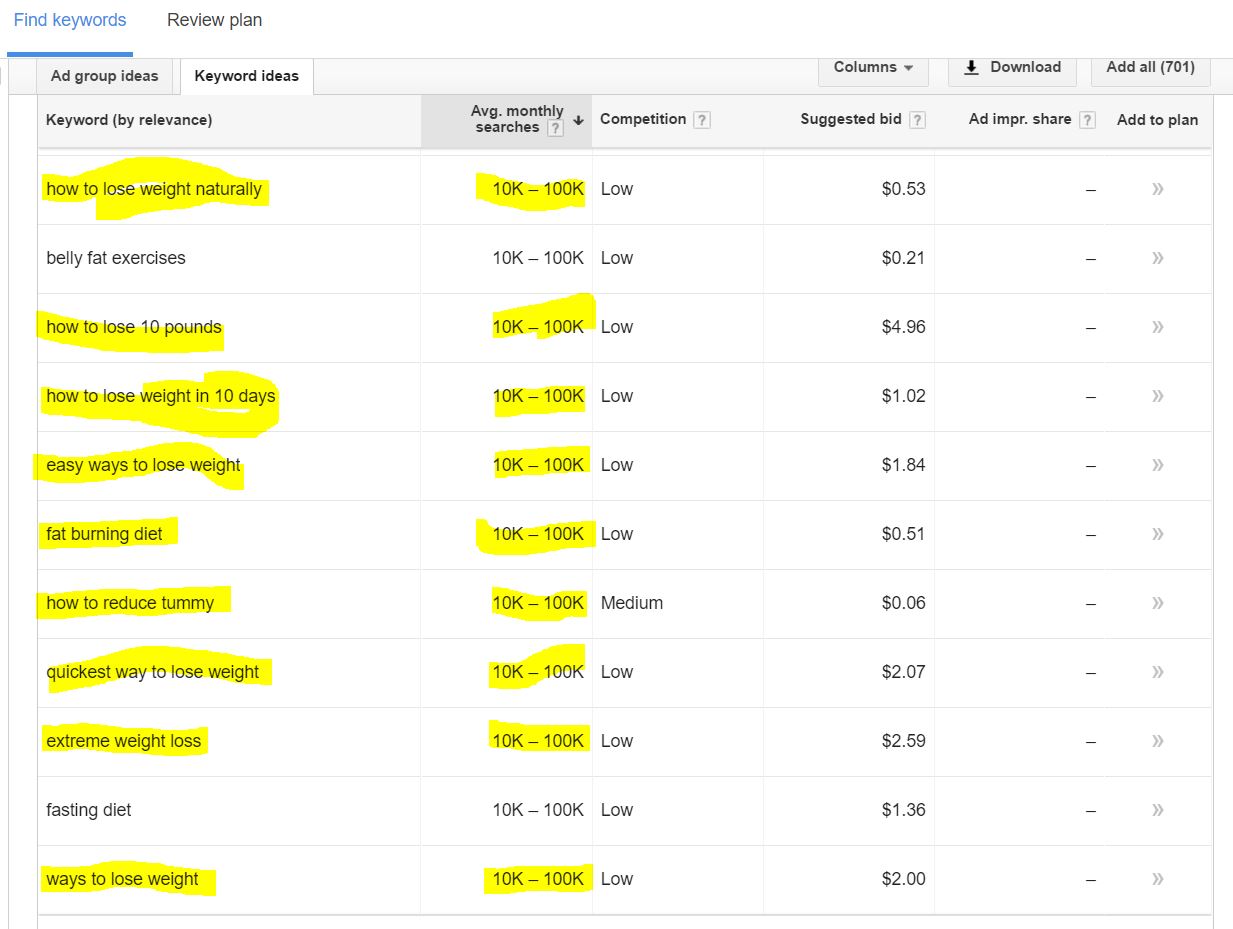 Less than that and nobody’s really looking.
Less than that and nobody’s really looking.
More than that and it’s going to be hard to compete unless you’ve already built out your platform.
It might not hurt to check the competition score either. Look for Low and Medium.
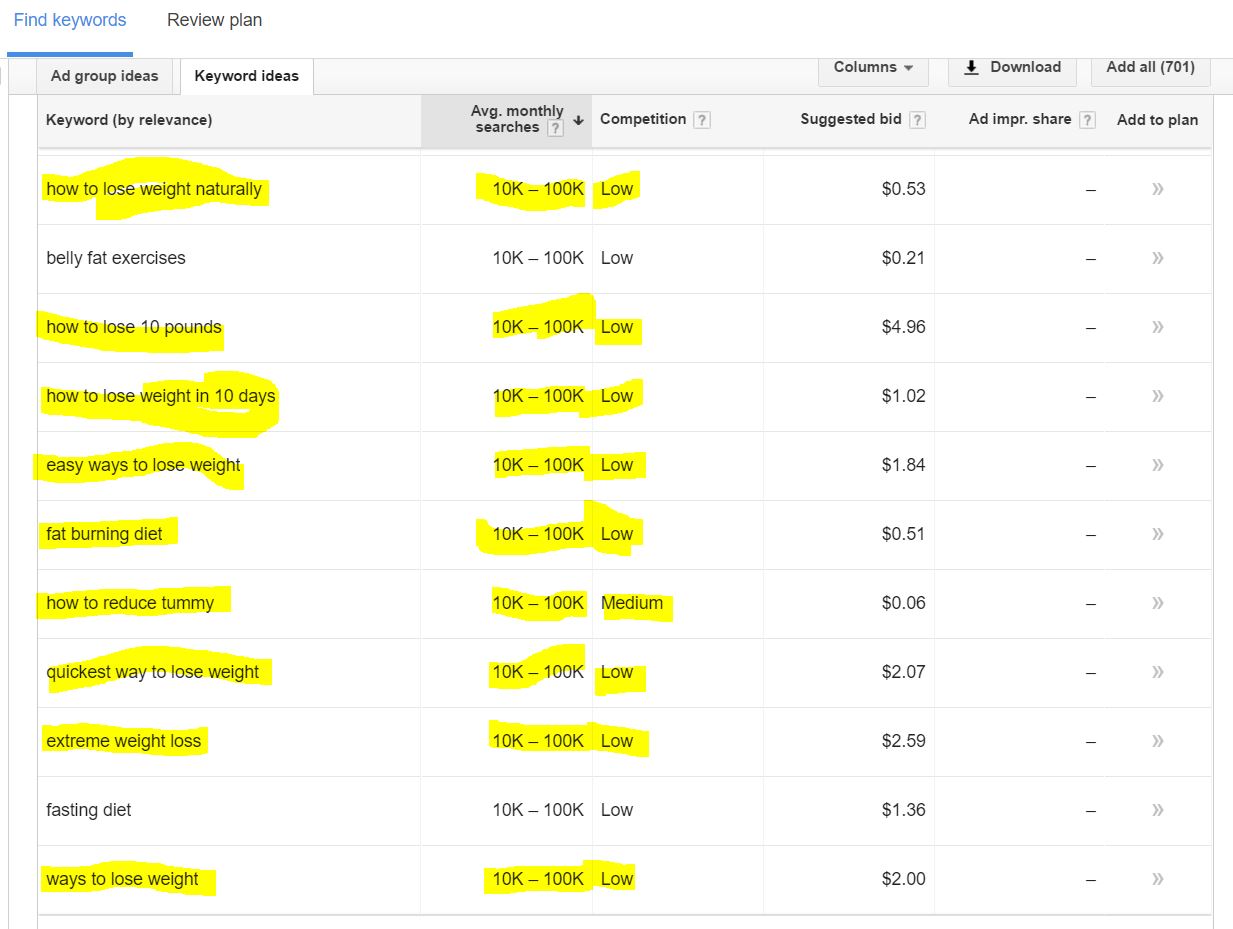 You can use this list to generate some ideas for book titles. Let’s say you’re writing a book about intermittent fasting. You could title your book, “Intermittent Fasting: The Fat Burning Diet.”
You can use this list to generate some ideas for book titles. Let’s say you’re writing a book about intermittent fasting. You could title your book, “Intermittent Fasting: The Fat Burning Diet.”
Don’t discard other interesting key words. This process may help you find book titles for future books, which you should be writing to grow your expert platform.
Now that you have a few ideas, let’s move to the next step.
Step Two: Competitive Analysis
Take long-tail keyword and search for it in Google. Be sure to put quotes around your keyword so you get an exact match.
 If you see no exact matches on the first page of Google, you might have a winning keyword.
If you see no exact matches on the first page of Google, you might have a winning keyword.
If you do find a few matches, it’s time to check out the competition.
In the example above, a google search for “fat burning diet” returned the following exact matches on the first page of Google:
 Since these were the only two exact matches, you’d still have a good chance of ranking “fat burning diet” on the first page of Google with some work.
Since these were the only two exact matches, you’d still have a good chance of ranking “fat burning diet” on the first page of Google with some work.
Now, what if there were eight or nine exact matches? Your next step would be to analyze the individual results.
For the sake of this exercise, let’s do that. It’s safe to assume that we can’t beat Muscle and Fitness without significant resources. But what about Fitness Magazine?
Let’s find out.
Click on the site and copy the URL to your clipboard. Don’t copy the URL From the original search results page, or you’ll get a lot of extra parameters:
 Instead, click on the result, then copy the URL to your clipboard.
Instead, click on the result, then copy the URL to your clipboard.
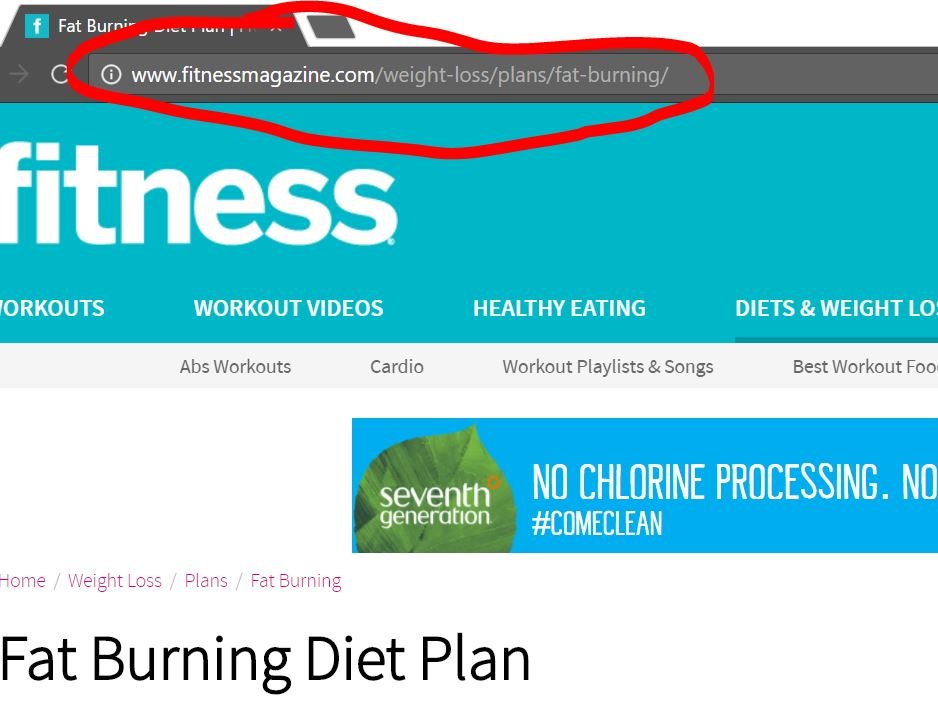 Now, go to Open Site Explorer. Paste the URL into the URL Search box and click “Search.”
Now, go to Open Site Explorer. Paste the URL into the URL Search box and click “Search.”
 Here’s what we’re hoping to find:
Here’s what we’re hoping to find:
- Fewer than 100 links to that exact article
- Fewer than 500 unique links to the entire site
Here’s what our example looks like:
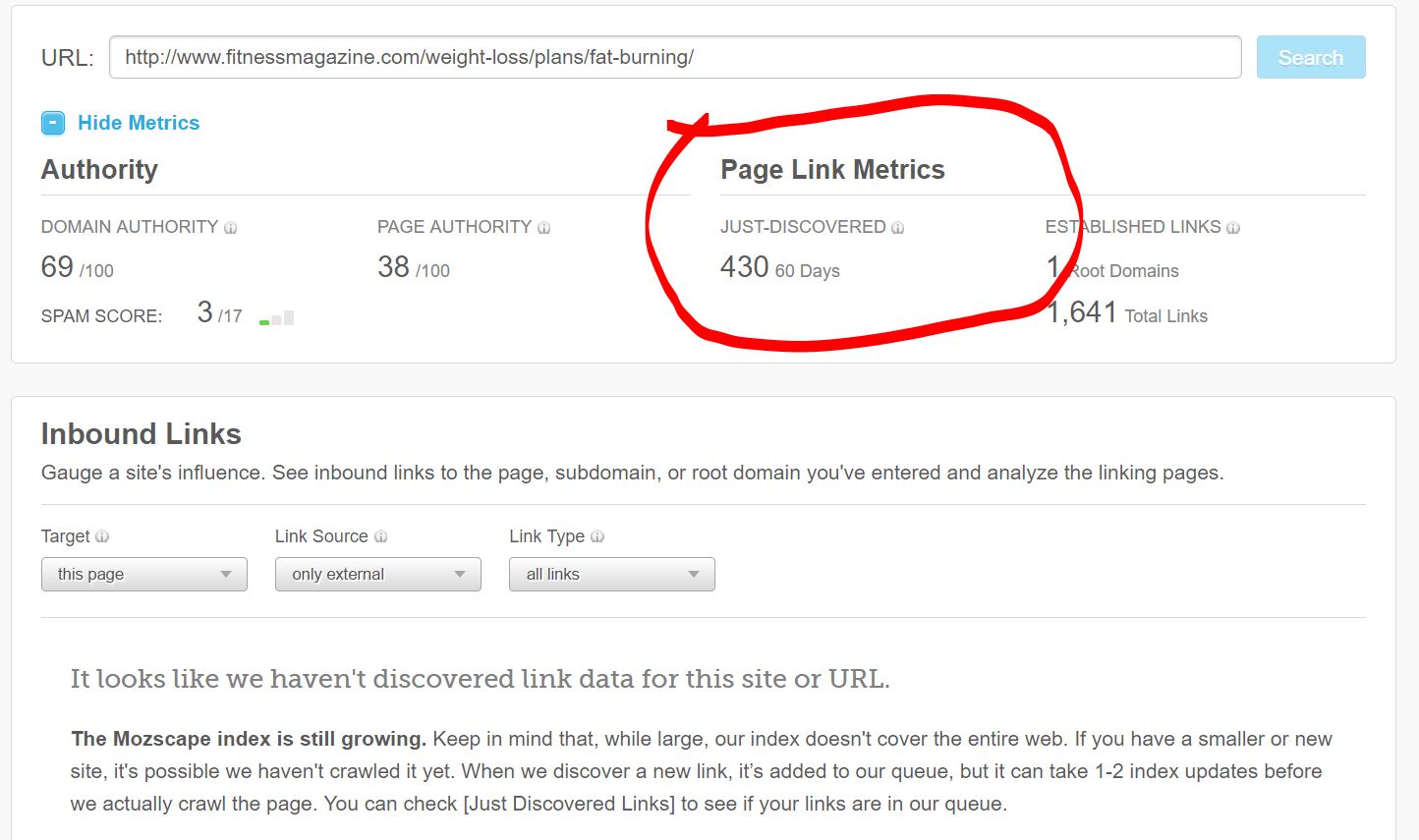 Open Site Explorer found 430 links to this page. Unfortunately—and this is a limitation with free tools in general—Moz hasn’t yet collected link data to fitnessmagazine.com as a whole.
Open Site Explorer found 430 links to this page. Unfortunately—and this is a limitation with free tools in general—Moz hasn’t yet collected link data to fitnessmagazine.com as a whole.
Since the free version of Open Site Explorer limits you to three searches per day, you can work with the data you have to determine if your keyword is a good one.
If I was writing a book about intermittent fasting, I might use the keyword “fat burning diet” in my title. Even though Fitness Magazine had more than 100 links to the article, we only saw two exact matches for our keyword on the first page of Google.
If Your Keyword is Too Competitive
But what if your research to this point has demonstrated that the keyword is too competitive?
Try a different keyword from your results, or research variations of the one you picked.
Try the Keyword Tool’s suggestion feature, or ask your friends.
Another option is to grab the main themes from your book—even the words that appear the most—and play with combining those in different ways to see if you can create a searchable title.
No matter what, keep trying. There’s a lot of competition out there, but not everything has been said on your subject. Guaranteed.
Keep at it until you find a title that works for you. Giving up too soon could really lower the chance that your unique message gets shared with the world.
What do you think? What strategies do you use to find book titles?


